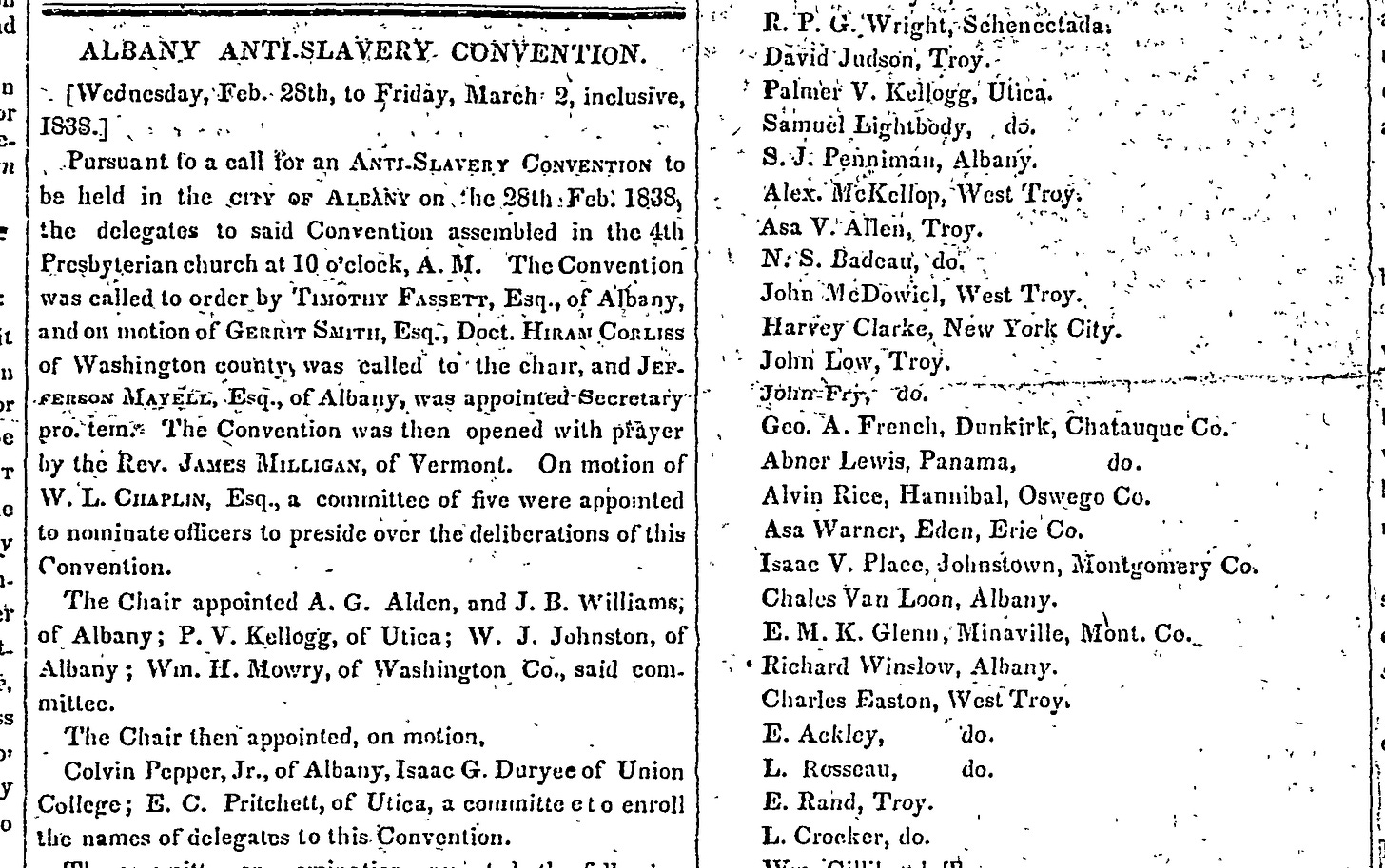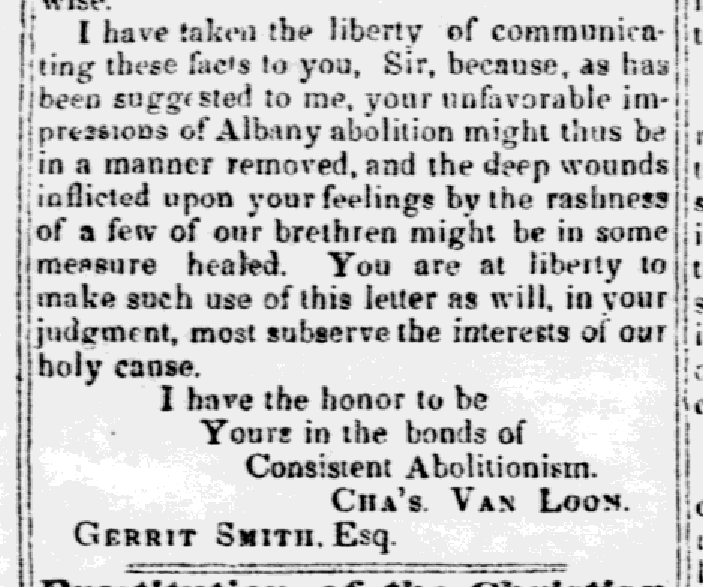Charles Van Loon, teenage abolitionist
For the time being, Charles was not yet sufficiently evangelized to rise above his prejudice. One can imagine Herman’s brothers and sisters chortling over Van Loon’s vain racism….1
Hahahahahahahahahahaha
If you absolutely have to call somebody a racist over the grandiloquent Philo Logos correspondence between young debate clubbers Herman Melville (1819-1891) and Charles Van Loon (1819-1847), maybe don’t pick the guy who as president of the Philo Logos Society made their first public debate about the immediate abolition of slavery
and who just got back from the Albany Anti-Slavery Convention with a contingent of fellow activists in the local Young Men’s Anti-Slavery Society.
The guy who later in 1838—still only 19 years old, and openly embracing “the bonds of Consistent Abolitionism”—corresponded with Gerrit Smith
and spoke by invitation in pastor Nathaniel Paul’s Hamilton-street Baptist Church.
ANTI-SLAVERY MEETING.— The Anti-Slavery Meeting advertised for this (Tuesday) evening, is postponed until Sabbath evening next. It will be held at Mr. Paul's church, Hamilton st. A lecture will be delivered by Mr WIGGINS, agent of the N. Y. Anti-Slavery Society. Mr. VAN LOON, and others, will address the meeting. Citizens generally are invited to attend.2
The one Frederick Douglass memorialized ten years after his untimely death, recalling “how he despised, disregarded and trampled upon the mean spirit of color caste, which was then so rampant and bitter in the country, and his cordial and practical recognition of the great truths of human brotherhood.”3
Charles Van Loon?! No, don’t pick him. If you really need a juvenile racist stooge to laugh at, try the other guy. I heard he invented verbal blackface, masquerading as “Tawney.”4
John Bryant, Herman Melville: A Half Known Life (Wiley-Blackwell, 2021) Volume 1, page 372.
Albany Evening Journal, December 11, 1838.
"West India Emancipation" in Two Speeches by Frederick Douglass (Rochester, NY: C. P. Dewey, 1857) page 4.
John Bryant, Herman Melville: A Half Known Life (Wiley-Blackwell, 2021) Volume 1, pages 371-372.






